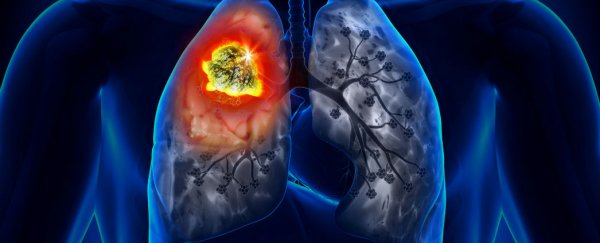For 55 years, the US has placed a punishing trade embargo on Cuba, around which the local economy has struggled to grow. Now, the tides have turned, and with the Obama administration moving to lift the embargo, scientists in the US are keen to get their hands on a lung cancer vaccine developed by the small island nation.
As part of a deal struck last month in Havana, a lung cancer vaccine developed by Cuba's Centre for Molecular Immunology will be trialled in the US by the Roswell Park Cancer Institute. The goal? To get the so-called 'Cimavax' vaccine approved by the US Food and Drug Administration (FDA). With research suggesting that the vaccine is cheap to produce and has low toxicity, Roswell Park's CEO, Candace Johnson, told Neel V. Patel at Wired, it's "a very exciting prospect."
With help from the Centre for Molecular Immunology, Johnson hopes to get approval to test Cimavax in the next six to eight months, and to start clinical trials in a year.
While Cubans have been living in relative poverty, with drastic supply shortages and workers earning $20US a month, its medical system is world-class. Despite spending far less than the US per person on healthcare, their life expectancy is on par. Johnson explains to Wired: "They've had to do more with less so they've had to be even more innovative with how they approach things. For over 40 years, they have had a preeminent immunology community."
After a dengue fever outbreak struck nearly 350,000 Cubans in 1981, the governing Castro brothers made preventative medicine a priority. Called the Biological Front, the effort waged war by focussing specific agencies towards achieving specific goals. They managed to produce interferon - an important protein in immunity - as well as create effective vaccines for meningitis B and hepatitis B.
In a country known for cigars, it might not come as a surprise that lung cancer is one of the major killers in Cuba - the fourth-leading cause of the death in Cuba, according to Patel at Wired. So for the past 25 years, they've been developing Cimamax, which is now available freely to Cubans. "[The] Phase II trial from 2008 showed lung cancer patients who received the vaccine lived an average of four to six months longer than those who didn't," Wired reports. This led Japan and some European countries to trial the drug as well.
The drug itself is far from flawless and, by attacking a cell's protein rather than the tumour directly, can have severe side effects, including – of all things - causing a higher risk of cancer. It's also not a cure, or a preventative medication, but a way of managing the disease. But Roswell Park scientists hope to research the vaccine further to see if it can do more than this - they think it could prove useful for other cancers, including prostate, breast, colon, and pancreatic forms.
The Cubans also have another potential lung cancer vaccine called Racotumomab, which reportedly disrupts a particular lipid in tumour cell membranes.
So now researchers in the US are hoping the embargo lift will happen sooner rather than later, so more collaborative research can take place. They might be able to learn a thing or two from the doctors in Cuba who, by necessity, were forced to innovate.
Source: Wired
